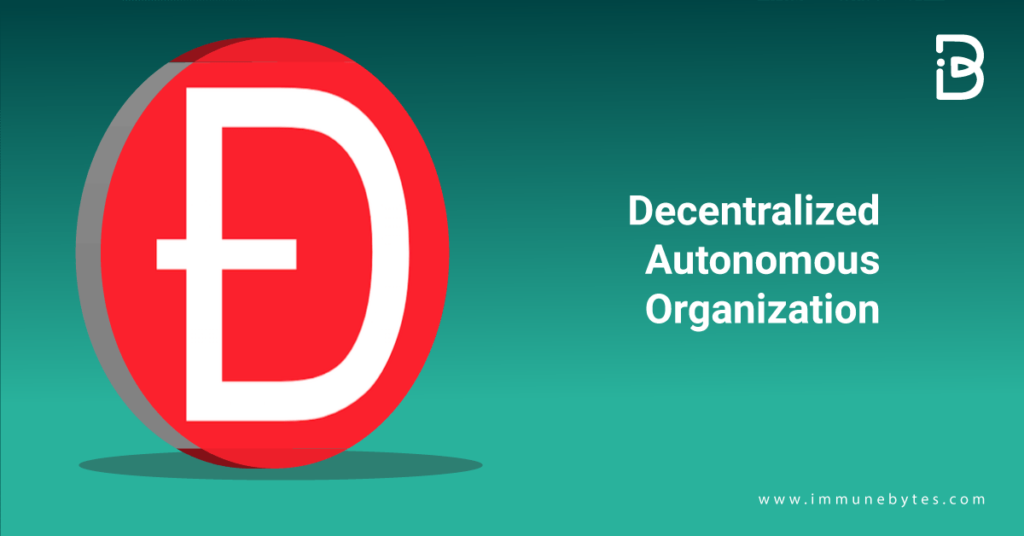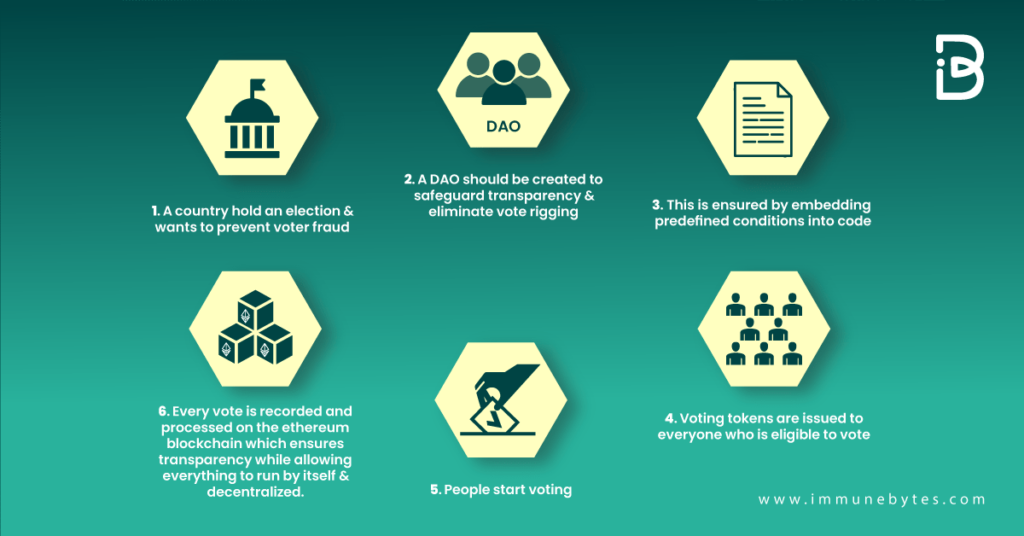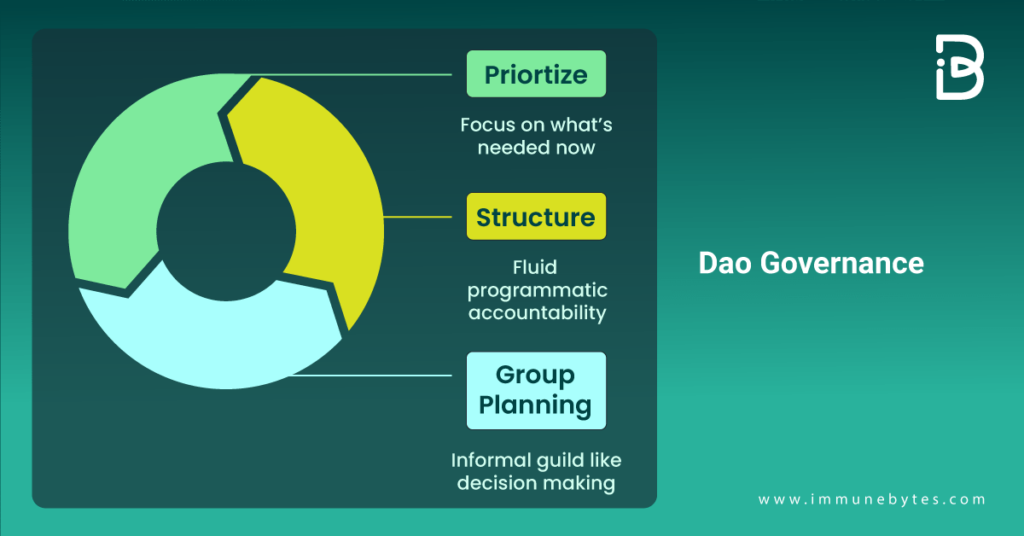Imagine a way of organizing with other people around the world, without knowing each other and establishing your own rules, and making your own decisions autonomously all encoded on a Blockchain. Sounds near impossible? Well, DAOs are making this real!
Decentralized autonomous organizations have been around for a while ? what are they, and how do they contribute to the crypto space? Let’s find out in this blog.
What are DAOs?
Table of Contents
One of the major features of digital currencies is that they are decentralized, which implies that they are not controlled by a single institution like a government or central bank, instead, they’re divided among a variety of computers, networks, and nodes.
In most cases, virtual currencies make use of this decentralized status to attain levels of privacy and security that are typically unavailable to standard currencies and their transactions.
Inspired by this feature, i.e., decentralization of cryptocurrencies, in 2016, a group of developers came up with the idea for a Decentralized Autonomous Organization or DAO.
Additional Resource: What is Dao and How does it work?
The History of DAOism

The DAO was an organization that was designed to be automated and decentralized. It is an open-source blockchain protocol governed by a set of rules, created by its elected members, that automatically execute certain actions without the need for intermediaries.
It was meant to operate as a venture capital fund for the crypto and decentralized space. The lack of a centralized authority reduces costs and in theory, provides more control and access to the investors.
However, DAOs great start went wrong and it suffered a hack that is registered in the history book of decentralized finance!
After that moment, DAOs laid low for a while, until Maker came into the scene. MakerDAO is an open-source community that manages Dai, the most popular crypto-collateralized stablecoin and lending protocol in DeFi ? with nearly $10 billion locked in the protocol.
Talking more about how DAOs operate?
DAO’s rules are embedded into a computer program that executes by itself based on the nature of the protocol. Interpreting these program rules is not required as they are automatically implemented when the specified conditions occur.
Both the program rules and subsequent actions are recorded on a transparent and secure blockchain ledger, which cannot be tampered with, courtesy of an immutable timestamp and the distribution of the information to the network participants.
DAOs Working Model
DAOs operate using smart contracts, which are deployed on numerous blockchains nowadays, though Ethereum was the first to use them.
These smart contracts establish the DAO’s rules. Those with a stake in a DAO then get voting rights and may influence how the organization operates by deciding on or creating new governance proposals.

This model prevents DAOs from being spammed with proposals: A proposal will only pass once the majority of stakeholders approve it. The determination of this majority varies from DAO to DAO and is specified in the smart contracts.
Governance in DAOs
Mostly created on the Ethereum Network due to its smart contract capability, DAO has no conventional management structure and its codes are open source.
DAOs can be architecturally decentralized (independent actors run different nodes) and are geographically decentralized (subject to different jurisdictions), but they are logically centralized (the protocol).

DAOs have both internal and external governance components. Internal governance is characterized by non-hierarchical modes of governance and has quasi-democratic features. External governance is the reliance on clusters of servers and individual nodes for the functioning of the network and decision-making.
Notably, those who control nodes and server capacity can exert undue influence on decision-making, and in a stronger way than other actors.
Unlike democracy where executive powers and decisions are conferred on certain people, a DAO considers everyone without granting executive powers to anyone to run the affairs of the organization. The Bitcoin network is the first DAO-structured entity and has proved that a DAO form of governance could work in a virtual economy.
How are DAOs contributing to the Market?
DAOs have only one intent ? to make businesses and markets more efficient in their operation. Let’s see how!
- Smart contracts are extremely useful for automating transactional processes, and for reducing the input that humans must supply for relatively simple tasks.
- The goal of a Decentralized Autonomous Organization isn’t just to reduce human inputs?it’s to eliminate them entirely!
- They are the most cost-effective and fair business model ever conceived.
- They shore up the weaknesses of traditional centralized businesses but also of blockchain projects, with the former subject to central points of weakness, middlemen, and unaligned stakeholder interests.
- It requires no employees or executive managers, thereby providing a service without consideration of salaries, intermediaries, or even profits
These are some of the many ways DAOs are making the DeFi market and industry as a whole, much more efficient, fast, cost-effective, and transparent!
The Future is Autonomous
Companies using DAO platforms to compartmentalize and automate parts of their business can achieve fast scalability and be leaner without sacrificing the quality of service. However, there are a few obstacles that make a true DAO difficult to achieve, for now.
But as industries become more progressive and innovative with technology, a future with DAOs operating left, right, and center, doesn’t seem far away!
About Us
ImmuneBytes is facilitating blockchain security by employing the use of cutting-edge techniques on smart contracts and decentralized applications. We have a team of experienced security professionals who are adept at their niches and provide you with innovative solutions and consultation. So far we have worked on 175+ blockchain start-ups on different blockchain frameworks, with clients spread across the globe, and are continually unfolding ourselves to make this decentralized movement thrive.

